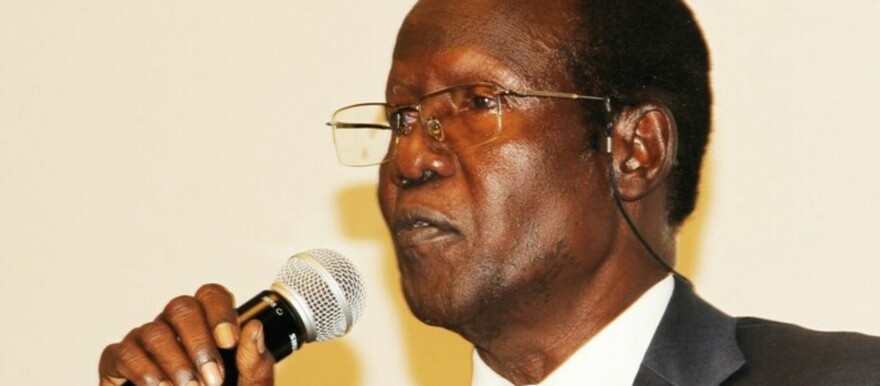South Sudan government’s decision to raise the salaries of civil servants and the army is to blame for the rise in commodities prices, a senior official said.
Speaking on day two of the ongoing second edition of the Juba Economic Forum on Tuesday, Vice-President for Economic Cluster Dr James Wani Igga appealed to South Sudanese to bear with the government as it likely to delay in implementing the 600 percent salary increment for the army and civil servants, saying this will raise prices of commodities in the market.
In September 2023, Parliament passed a 2.2 trillion pound fiscal year budget with a 400 percent salary increment. The assembly promised to pass the 600 percent increment in the supplementary budget, to be tabled in Parliament soon once it resumes business.
However, Dr. Igga said from an economic perspective, he knew that the recent increase in salaries for civil servants was going to have negative impacts on the prices of commodities in the market.
According to him, the government foresaw the current challenges, referring to the current inflation, that’s why it has decided to consider the 400%.
“I know that the salaries of our people are very low. But these salaries were fixed when our economy was good and our pound was strong. Some people would even build houses and our pound was strong. But our pound is now affected,” Igga said.
“80 percent of the people would think that you are against them and you are responsible for their suffering if you don’t want it to be increased. And I know the problems we can run into,” he said.
The vice president blamed the traders for always increasing the prices of commodities whenever they noticed any slight increase in civil servants’ salaries.
“You know, you traders, thank you for your efforts and diligence in serving the people of South Sudan, but you are also overcharging in doing that. Any small increment in salaries alone is an increment in prices. This is the truth; immediately, the news will reach the market, and prices will increase. This is the reality of the economy,” he said.
“So, the prices rose, the pounds dropped, and the dollar rose because of this increase, which we foresaw, but we could not avert it because our people were suffering,” Dr Igga added.
He further said that based on the bad economic experiences, the Economic Cluster does not support the proposed 600 per cent pay increment, saying it can only worsen the situation.
Igga said the revenue generated from oil and non-oil sources needs to be improved to cater for salaries and other services.
“Our salary increment for civil servants and the army is almost 80 million pounds monthly. And the money generated from the oil is not enough,” he concluded.




